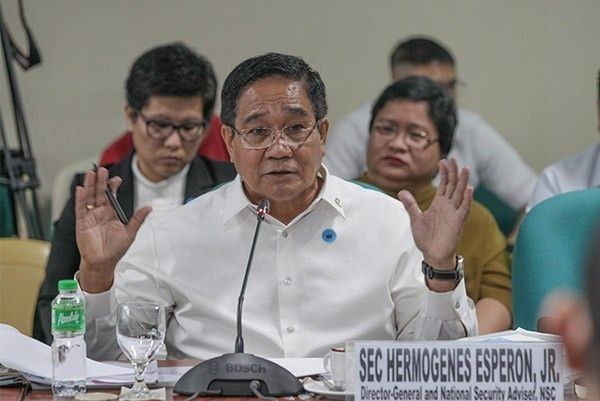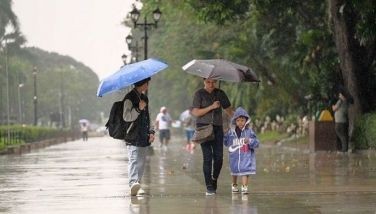Censorship of sites for alleged communist ties 'deeply concerning', rights groups say

MANILA, Philippines — Rights groups on Wednesday raised concerns over the National Security Council's move to block public access to dozens of websites allegedly linked to communist rebels, calling it an attack on freedom of information and of expression.
The Palace stood by the online censorhip saying news organizations like Bulatlat and Pinoy Weekly that were included in the list can seek legal remedies. It did not say what these remedies were.
Rights group Amnesty International called the blocking "a blatant attack on freedom of information and expression" adding it is "deeply concerning" that this is being done as a new administration is set to take office.
The two alternative publications have been reporting stories on human rights and underreported sectors in the country since the 2000s.
"Press freedom and freedom of expression are rights guaranteed in the constitution of the Philippines and under international human rights law. They must be protected," Amnesty International said.
'Terrorist-tagging'
Human Rights Watch said the move is "another dimension to the government's outrageous, rights abusing efforts" to red-tag and now "terrorist-tagging" journalists and activitists.
It added that the government, through the National Security Council, has done so without even providing evidence and instead used "catch-all weasel words" like "affiliates" to censor the websites.
"The National Telecommunications Commission should refuse this attempt by the NSC to use it for political ends. The NTC should make sure that press freedon and freedom of expression online is upheld and respected," HRW Deputy Asia Director Phil Robertson said.
The NTC occassionally issues orders to ISPs to block access to certain websites when requested by government agencies like the NSC and the Philippine National Police. ICT civil rights and freedom of expression advocates have raised concerns over the practice, saying takedowns should only be done if ordered by the court.
The statements come after National Security Adviser Hermogenes Esperon Jr. requested the NTC to block access to nearly 30 websites, which includes alternative news sites Bulatlat and Pinoy Weekly along with groups Save Our Schools Network, Rural Missionaries of the Philippines, Pamalakaya Pilipinas, Amihan National Federation of Peasant Women, and BAYAN.
Esperon claimed that these websites are related to communist terrorist groups but did not cite basis for the claim.
He further alleged without evidence that they "publish propaganda and misinformation campaigns in order to malign the Philippine government, recruit new members, and to solicit funds from local and international sources."
“We call on the government to rescind this unacceptable order immediately,” Amnesty International said.
'Legal remedies available'
However, acting Presidential Spokesman Martin Andanar emphasized that the NTC acted within its mandate when it granted the National Security Council request to block the 28 websites.
"Legal remedies are available to any party, including online media outlet Bulatlat, affected by this action," he said in a short statement.
CPP: Only 7on the list are linked to us
Meanwhile, the Communist Party of the Philippines said the move was a desperate bid to censor online criticism and dissent against the incoming illegitimate Marcos II regime."
It added that it is a move to silence "progressive, patriotic and revolutionary journalism and literature that exposes the ills of the ruling system."
The CPP’s website, the Philippine Revolution Web Central, and other affiliates such as the National Democratic Front of the Philippines are in Esperon's list.
Calling it the "Marcos Anti-Democracy (MAD) Internet Firewall," the CPP said that the NTC and Esperon’s move to block websites is just the beginning of a long attempt to silence reportage.
“We believe that the MAD Firewall is just the opening scene for a general crackdown against Philippine media under the incoming Marcos II regime,” it said in a statement.
The CPP further noted that among the websites listed, only seven are its actual affiliates. The rest are alternative news websites, progressive journalists and academics, local cause-oriented groups, as well as some inactive pages. — Kaycee Valmonte with reports from Kristine Joy Patag
- Latest
- Trending

































